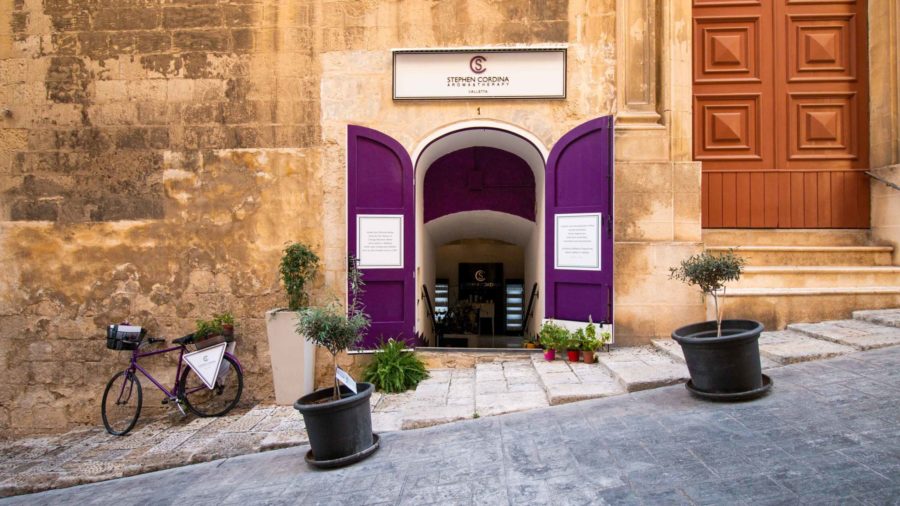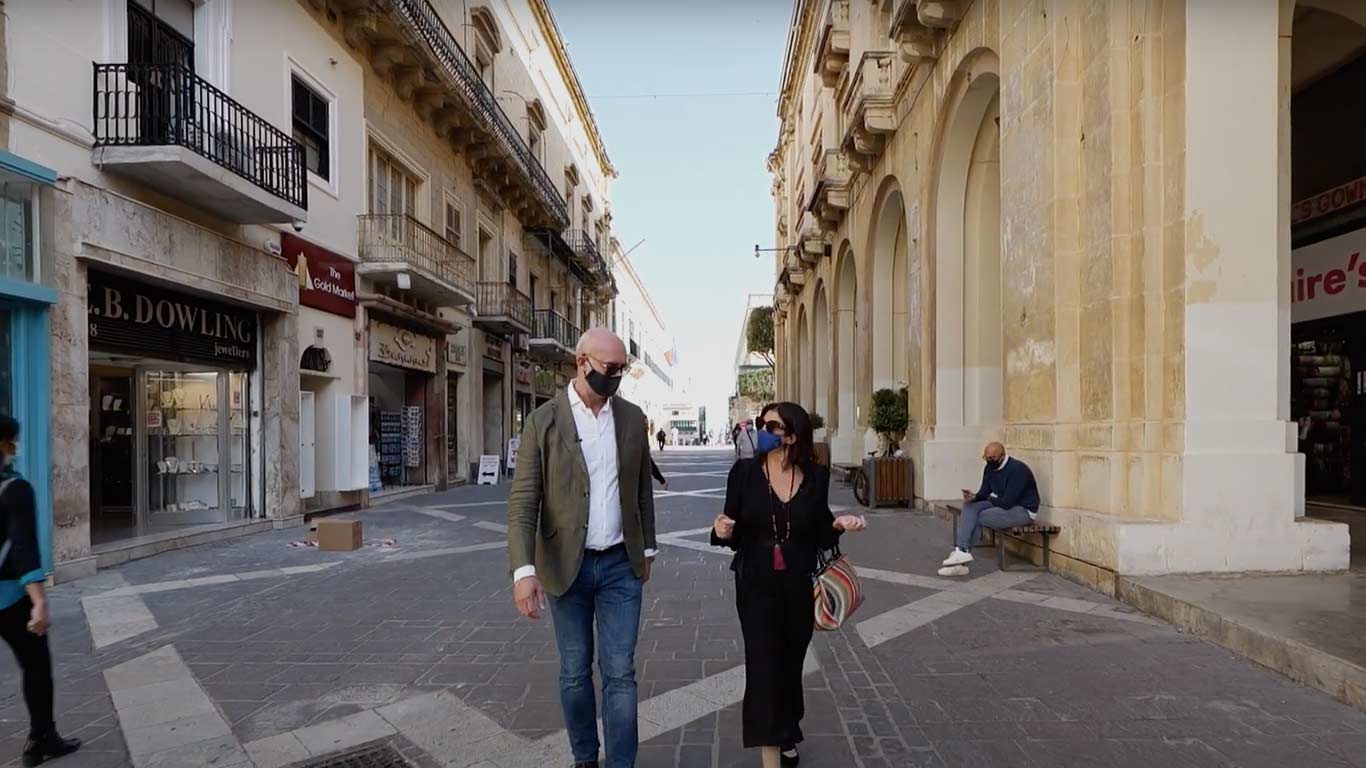When walking along the streets of Valletta, you may be lucky enough to stumble upon a deep purple door next to St Barbara’s Bastion, which overlooks the Grand Harbour. Behind the door lies a quaint, boutique perfumery and workshop where Stephen Cordina – Malta’s foremost natural perfumer – develops his signature scents. Visitors can pick up an Eau de Parfum or a natural-scented candle from the atelier which, with just one whiff, transports them back to the Maltese islands from wherever they are in the world.
As the son of a farmer and police Sergeant, Stephen grew up working the fields in Gozo. He struggled in school due to his dyslexia, which was only diagnosed at the age of 18, but found great solace in the natural aromas and mists he experienced while picking fruit and vegetables from the fields in the early mornings. During the local feast celebrations, he would pick up the firework petards that did not explode, collecting the gunpower to create his own firecrackers. Through these early experimentations, Stephen began recognising the chemicals by their odour, naming them based on their smell. Going on to study aromatherapy abroad and, later on, perfumery, Stephen returned to his home country with the dream of starting his own natural perfumery.
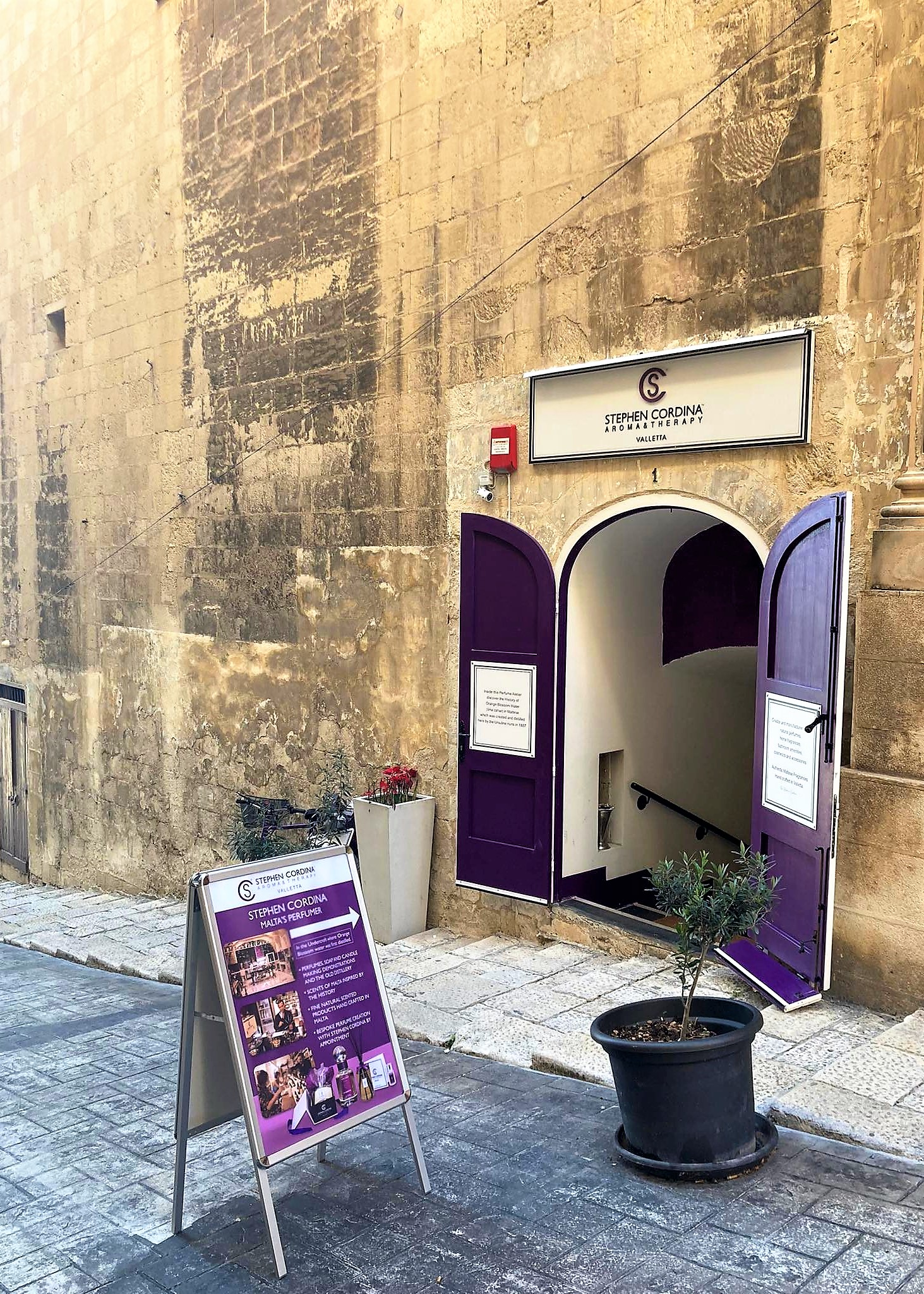
“I had my sights set on this 16th-century building – which was the first monastery in Malta during the rule of the Knights of St John – since I was 20 years old, and always dreamed of opening a store here rather than on the main street of Valletta.”
We spoke to Stephen who shared his journey to becoming Malta’s foremost natural perfumer. Here is his story:
Where did your love for aromatherapy start?
From an incredibly young age, I always had a love for fragrance. I was considered somewhat of a disaster at school, but, as my mother began suffering from certain ailments, I assured her that I would heal her by studying medicine. I could not keep up at medical school due to my then-undiagnosed dyslexia, but I later became intrigued by a local herbalist called ‘Frenċ tal-Għarb’, and began trying to learn his natural remedies.
What made you decide to study aromatherapy formally?
While working as a head waiter, my managers realised that I couldn’t take an order and wanted me fired. Luckily, the general manager disagreed and asked me to get my eyesight checked out. There was nothing wrong with my eyes, but I was told that I had dyslexia at age 18. This diagnosis instilled a new sense of hope in me, motivating me to attend private lessons where I learned how to read and write. At around the same time, a British school for herbal medicine opened in Malta and I signed up for the Clinical Aromatherapy course. After the first year, I decided to move to London to continue my education there since Gozo was becoming a difficult place to live in due to my sexuality.
How did you go from studying Aromatherapy to Perfumery?
While in London, I opened my own practice as a clinical aromatherapist but the feedback I was getting was that my ointments smell much better than others! Somebody suggested I look into becoming a perfumer, but since there were no perfumers back home, I had nobody to look up to for advice. I was afraid to believe in myself, partially because the perfume industry can be brutal as much as it is beautiful. My love for natural perfumes over synthetic ones made it even more difficult, as the former is much more complex. Eventually, I decided to take perfumery courses in London and that is when I realised that I was far more capable than I thought. With the help of a friend, I got a role as an intern at a cosmetic manufacturing company in Switzerland. My skill set made me an ideal candidate, but I did not yet consider myself a perfumer. Still, they recognised my potential and assigned me as their nose.
I couldn’t afford to go to Grasse, where the main school for perfumers is located, but I continued studying and, after 5 years in Switzerland, I returned to Malta to start my own range of aromatherapy products, mainly plant-based healthy skincare and candles.
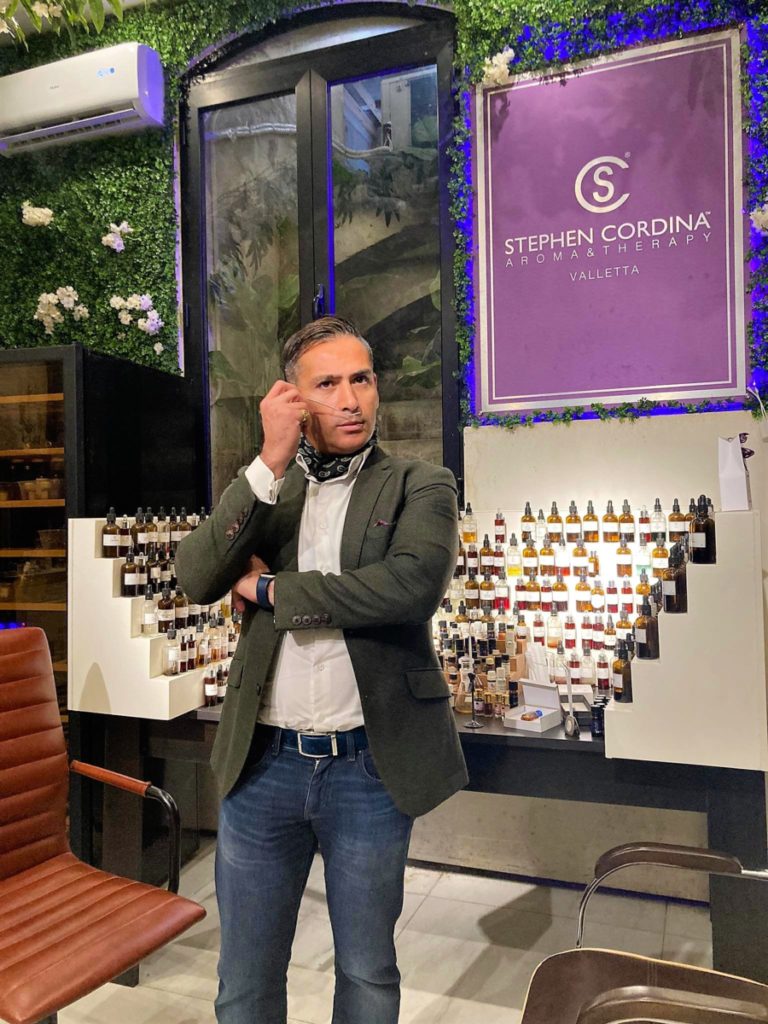
What was your experience like during the early days of your business?
The products I was creating were completely new to Malta at the time, so I was met with a lot of resistance. I had applied for a permit to open a small factory, but my business plan was pushed aside for three years. At age 28, I was asked by a local celebrity to find a cure for his condition – which I did – and I then got invited to take part in a year-long programme on the national broadcasting station (for free!). That’s when things began to take off. It was a terrifying experience as I had to prescribe cures on live television to callers, and alternative medicine was not very well known. I found over 80 missed calls on my phone during the show, and my clinical practice skyrocketed. My business plans were then approved, and I invested every bit of money that I made back into my dream.
What were the first products you developed for Stephen Cordina – Aroma & Therapy?
I began making the first candles that turn into a therapeutic body cream as the wax melts, and local hotels soon started using my candles for massages within their spas. I then went on to develop new products, ranging from shower gels for the hotel industry to bespoke requests for superyachts. My product range expanded to include room fragrances and body products. After winning the Young Creative Entrepreneur Award, I launched Stephen Cordina – Aroma & Therapy in London and slowly began penetrating other markets.
Why did you choose Valletta, and this building in particular, for your first atelier?
I had my sights set on this 16th-century building – which was the first monastery in Malta during the rule of the Knights of St John – since I was 20 years old, and always dreamed of opening a store here rather than on the main street of Valletta. I used to park close to this area and walk up these stairs, past the monastery of St Ursula, which was home to a distillery that was used to make ‘ilma zahar’ (orange blossom water) from the orange blossom trees in their garden. I wanted to recreate a part of Malta’s history that had been lost. The ‘ilma zahar’ was an important ingredient – a medicinal water – which plays a big role in the first liquid perfume ever created, called aqua mirabilis. As the cloister produced this herbal medicine here, it was the perfect address for me. I received my perfumer accreditation from Grasse and turned out to be the first perfumer in Maltese history!
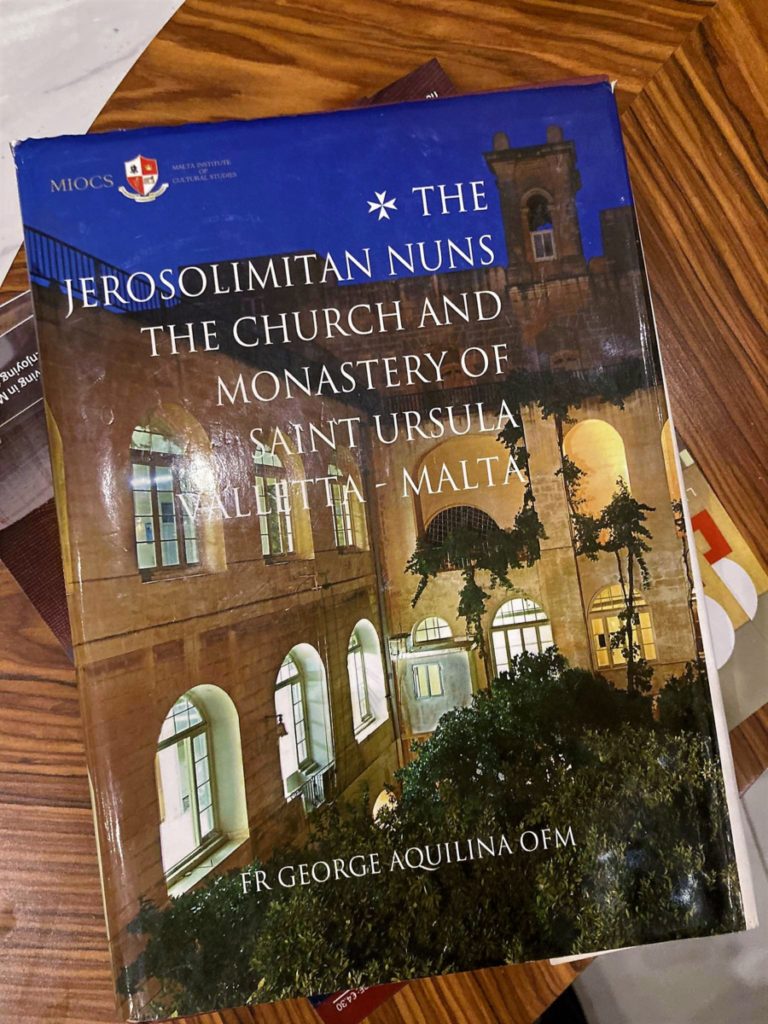
What inspires each fragrance?
My products that carry a Maltese name, such as Valletta, Medina, San Anton Palace and Gozo, are all inspired by the history of the place. This could include the plants surrounding the location and the smells that were used to scent the houses during the plague. Other scents vary, such as one that I created as a homage to my mother after she passed away using aniseed, which was used by Gozitan women as a substitute for sugar in their coffee. Others often reflect the valleys and gardens of Malta.
How do you know when a product is ‘ready’?
When developing a new scent, I spend a lot of time analysing history and researching. I then obtain the ingredients and start a series of trials and errors. This experimentation can last from one month to more than a year until you find the correct combination. To know that the scent is ‘ready’, I sometimes meet with elderly people in different localities to get their feedback on the scents, read books about the history of perfume and look to the Egyptians who were the masters of scent. I also refer to translated texts from Mesopotamian times.
Finally, I look at what burns well in a candle. Sometimes I create incense using high-quality ingredients as this is what perfume really is – ‘per fumum’ (through smoke) in Latin. That is actually how people used to scent themselves and their homes, and even communicate with the gods in olden times.
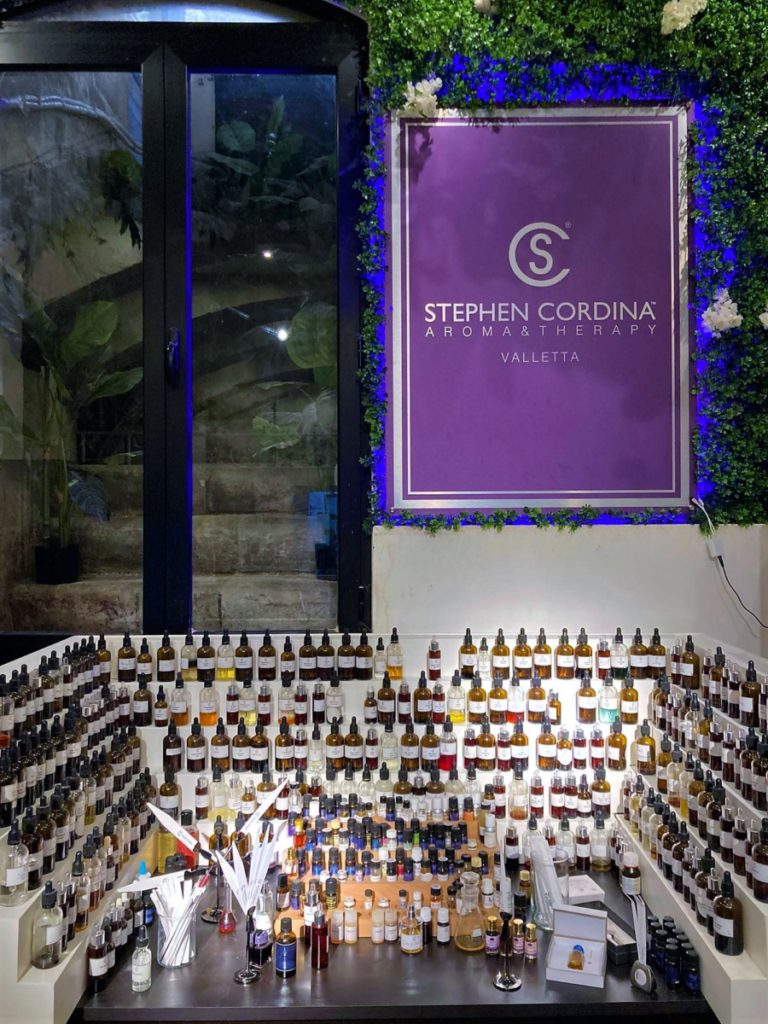
What are your personal favourite scents?
I would have to say it is my deep sleep pillow spray. Running a small to medium business requires grit, and I need a very good night’s sleep to be able to run the business and be a creator. The scent is a synergy of essential oils that helps calm the mind for a peaceful sleep.
In the morning, I love the refreshing shower gel with stimulating essential oils and I also love the shaving oil which leaves the skin soft and smooth. For every day, I choose the Aqua di Valletta Eau de Cologne and in the evening, either the STIGMATA Eau de Parfum or Knight in the winter.
Group Travel Experiences
Visiting Stephen’s atelier in Valletta is a unique way to learn about the island’s vast history. At Alpine Sterling DMC, we’ve worked with Stephen to organise small group tours of the atelier and perfume-making workshops while learning about Malta’s role in the perfume and trading industry. Stephen also takes visitors on an exploration of the different ingredients used by Cavemen, all the way through the era before Christ, to the mid-century and modern day.


